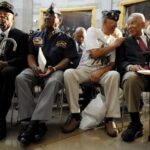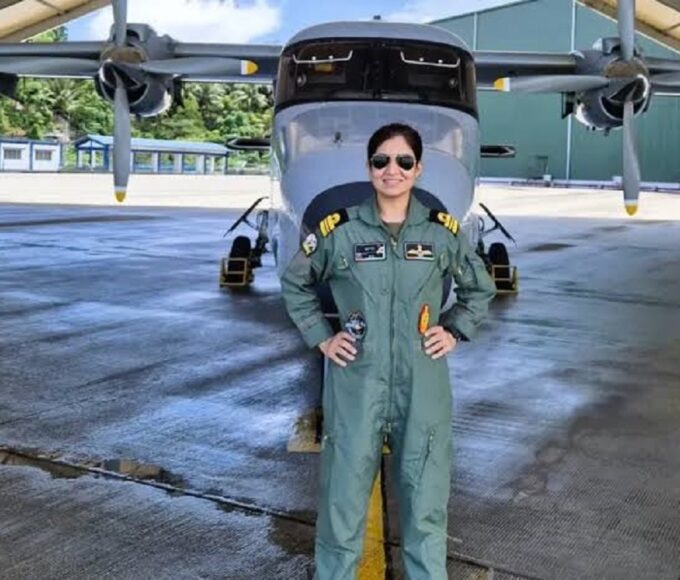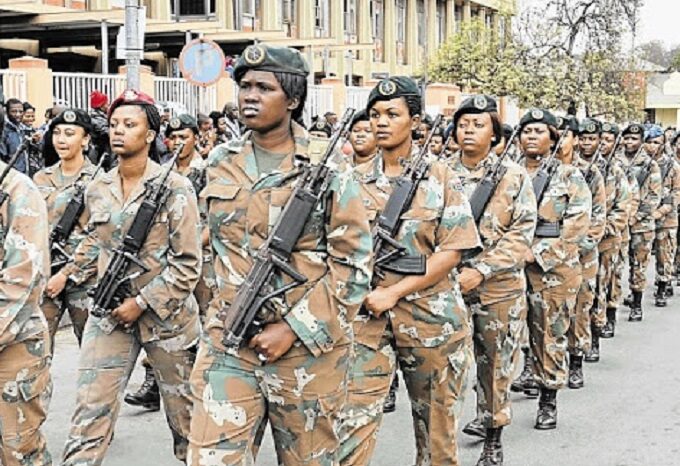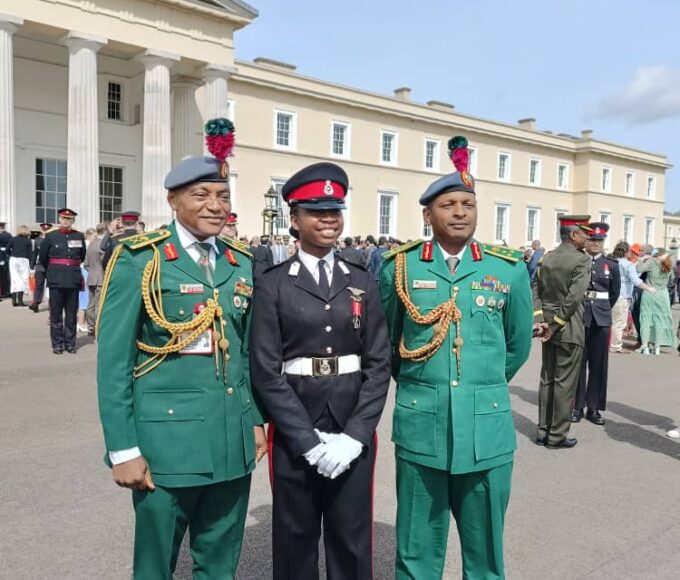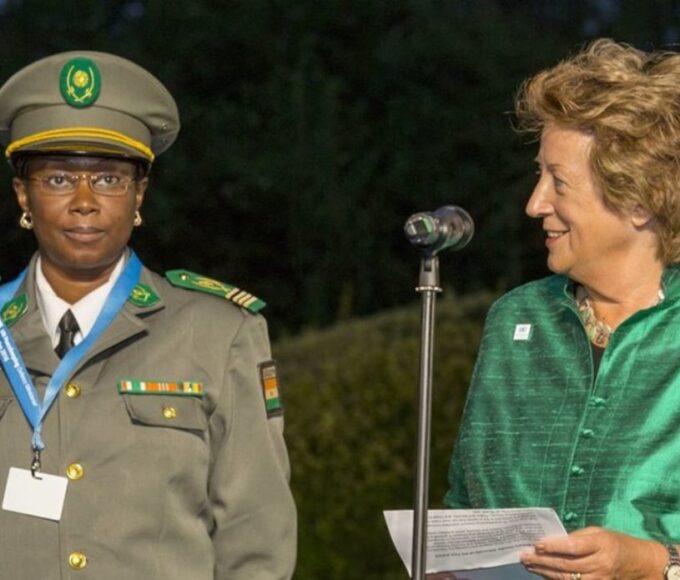PIONEERING WOMEN IN NIGERIA’S MILITARY HISTORY
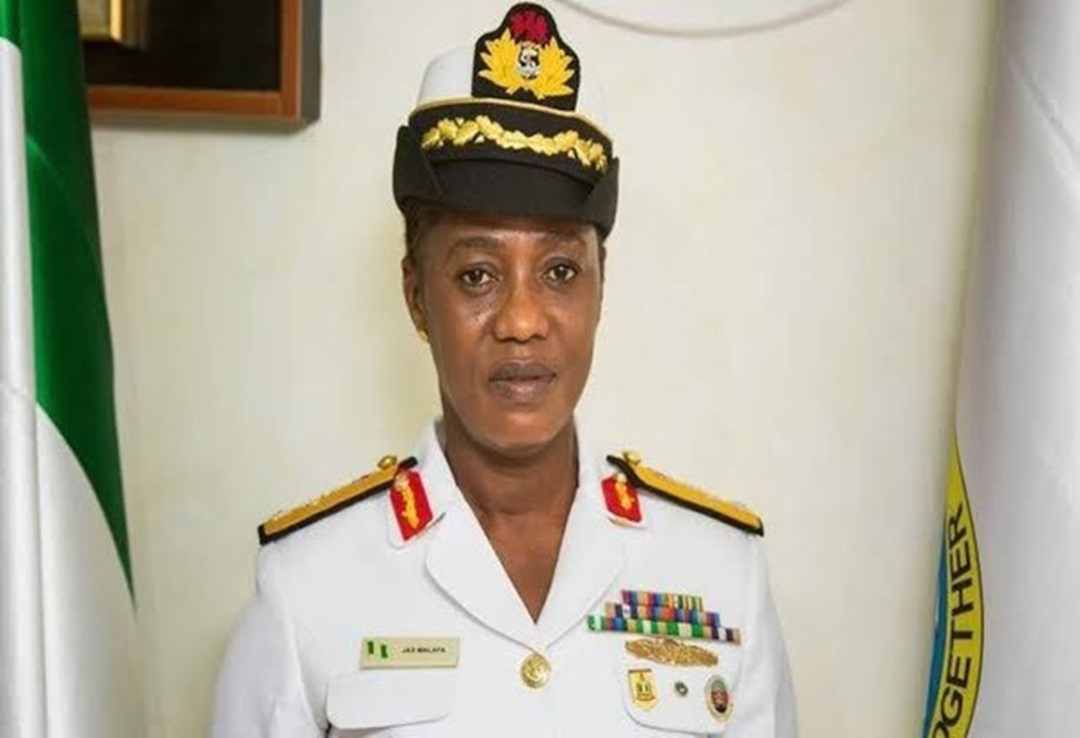
In the annals of Nigeria’s military history, women have long been underrepresented, yet their contributions have been pivotal in reshaping the nation’s defence landscape. Traditionally, the Nigerian Armed Forces—comprising the Army, Navy, and Air Force—were male-dominated domains, with women initially confined to supportive roles such as nursing and administration. However, the late 20th century marked a turning point as pioneering female officers began shattering glass ceilings, proving their mettle in leadership, strategy, and combat readiness. These trailblazing female generals have not only excelled in their duties but have also inspired generations of young women to pursue careers in defence, challenging societal norms and gender biases in a country where cultural expectations often limit women’s roles. Their stories highlight resilience, intellect, and unwavering commitment to national security, setting precedents for inclusivity within Africa’s largest military force.
THE EVOLUTION OF WOMEN’S ROLES IN THE MILITARY
The journey of women in Nigeria’s defence began modestly in the 1960s, with the enlistment of the first female officers. Captain Josephine Okwuekeleke Tolefe became the inaugural female commissioned officer in the Nigerian Army in 1960, paving the way for future integrations. Over the decades, policies evolved to allow women greater participation, including combat roles by the 2010s. Despite facing institutional barriers, such as limited promotions and gender stereotypes, these women rose through the ranks, often outperforming expectations in peacekeeping missions and internal security operations. Today, Nigeria boasts a 27.9% female participation rate in peace support operations, surpassing UN benchmarks and reflecting progressive shifts in military culture. This evolution underscores the transformative impact of female leaders who have turned obstacles into opportunities.
READ ALSO: Combat Proven: African Women in Frontline Infantry and Special Forces
MAJOR GENERAL ADERONKE KALE: A HISTORIC FIRST
Major General Aderonke Kale stands as a monumental figure, being the first female major-general in the Nigerian Army and West Africa. Born in 1939 to a pharmacist father and a teacher mother, Kale pursued medicine at the University of Ibadan and specialised in psychiatry in London. Joining the Army in 1972, she served as chief psychiatrist and later commanded the Nigerian Army Medical Corps from 1994 to 1996, overseeing healthcare for all soldiers. Her promotions to brigadier-general in 1990 and major-general in 1994 broke unprecedented barriers, challenging the notion that women could not lead in high-stakes military environments. Kale’s legacy endures, with the Nigerian Defence Academy honouring her with a monument in 2024, inspiring countless women to defy limits.
MAJOR GENERAL ABIMBOLA AMUSU: ADVANCING MILITARY HEALTHCARE
Following in Kale’s footsteps, Major General Abimbola Amusu emerged as the second female to command the Nigerian Army Medical Corps, serving from 2015 to 2019. As a medical professional, Amusu focused on enhancing military healthcare systems, including during counter-insurgency operations against Boko Haram. Her leadership exemplified how women could integrate expertise with strategic oversight, further normalising female authority in the Army. Amusu’s tenure built on Kale’s foundation, demonstrating sustained progress in gender equity and motivating female recruits to aspire to the top echelons.
BRIGADIER GENERAL CECILIA U. AKAGU: BALANCING DUTY AND FAMILY
Brigadier General Cecilia U. Akagu represents another beacon of barrier-breaking achievement in the Nigerian Army. Promoted to brigadier-general, she has balanced a demanding career with personal life, notably being married to fellow Brigadier General Clifford B. Wanda. Akagu’s roles have included key positions in public health and administration, contributing to the welfare of troops. Her story highlights the dual challenges of professional excellence and family responsibilities in a male-centric institution, proving that women can thrive without compromising either sphere.
REAR ADMIRAL ITUNU HOTONU: A NAVAL TRAILBLAZER
In the Nigerian Navy, Rear Admiral Itunu Hotonu made history as the first female to attain the rank of rear admiral. Commissioned in the 1980s, Hotonu’s career spanned logistics, training, and command roles, where she excelled in maritime security operations. Her promotion shattered naval glass ceilings, encouraging more women to join sea-faring branches. Hotonu’s journey from junior officer to flag rank illustrates perseverance amid scepticism, reinforcing the Navy’s commitment to diversity.
COMMODORE JAMILA ABUBAKAR SADIQ MALAFA: BREAKING REGIONAL BARRIERS
Commodore Jamila Abubakar Sadiq Malafa broke regional and gender barriers as the first female naval general from northern Nigeria. Overcoming cultural hurdles in a conservative region, Malafa rose through the ranks over nearly four decades, specialising in legal and administrative duties. Her achievement in 2017 symbolised inclusivity across Nigeria’s diverse ethnic landscape, inspiring northern women to pursue military careers despite societal pressures.
THE ONGOING JOURNEY TOWARD GENDER EQUITY
These female generals’ stories culminate in a broader narrative of empowerment, yet challenges persist, including unequal promotion rates and work-life balance issues. Their successes pave the way for future leaders, with increasing female enrolment in the Nigerian Defence Academy signalling a more equitable defence force. As Nigeria confronts evolving security threats, these trailblazers ensure that women remain integral to the nation’s strength and resilience, fostering a legacy of inclusivity and excellence in the armed forces.
King Richard Igimoh, Group Editor ALO
King Richard Igimoh, Group Editor African Leadership Organisation is an award-winning journalist, editor, and publisher with over two decades of expertise in political, defence, and international affairs reporting. As Group Editor of the African Leadership Organisation—publishers of African Leadership Magazine, African Defence & Security Magazine, and Africa Projects Magazine—he delivers incisive coverage that amplifies Africa’s voice in global security, policy, and leadership discourse. He provides frontline editorial coverage of high-profile international events, including the ALM Persons of the Year, the African Summit, and the African Business and Leadership Awards (ABLA) in London, as well as the International Forum for African and Caribbean Leadership (IFAL) in New York City during the United Nations General Assembly.
Recent Posts
Categories
- Air & Aerospace17
- Border Security15
- Civil Security6
- Civil Wars4
- Crisis5
- Cyber Security8
- Defense24
- Diplomacy19
- Entrepreneurship1
- Events5
- Global Security Watch6
- Industry8
- Land & Army9
- Leadership & Training5
- Military Aviation7
- Military History27
- Military Speeches1
- More1
- Naval & Maritime9
- Policies1
- Resources2
- Security12
- Special Forces2
- Systems And Technology9
- Tech6
- Uncategorized6
- UNSC1
- Veterans7
- Women in Defence9
Related Articles
BREAKING BARRIERS IN THE SKIES
For decades, women have defied limits in male-dominated fields, but few roles...
ByKing Richard Igimoh, Group Editor ALOSeptember 19, 2025Combat Proven: African Women in Frontline Infantry and Special Forces
The history of women in African armed forces is a story of...
ByKing Richard Igimoh, Group Editor ALOAugust 13, 2025Gender Integration and Leadership Gaps in Africa’s War Colleges
During the post-independence decades, Africa’s military academies and war colleges largely reflected...
ByKing Richard Igimoh, Group Editor ALOAugust 13, 2025Female Commanders in UN Peacekeeping: Leadership Lessons from the Ground
In the decades since the United Nations first deployed peacekeepers to conflict...
ByKing Richard Igimoh, Group Editor ALOAugust 13, 2025






